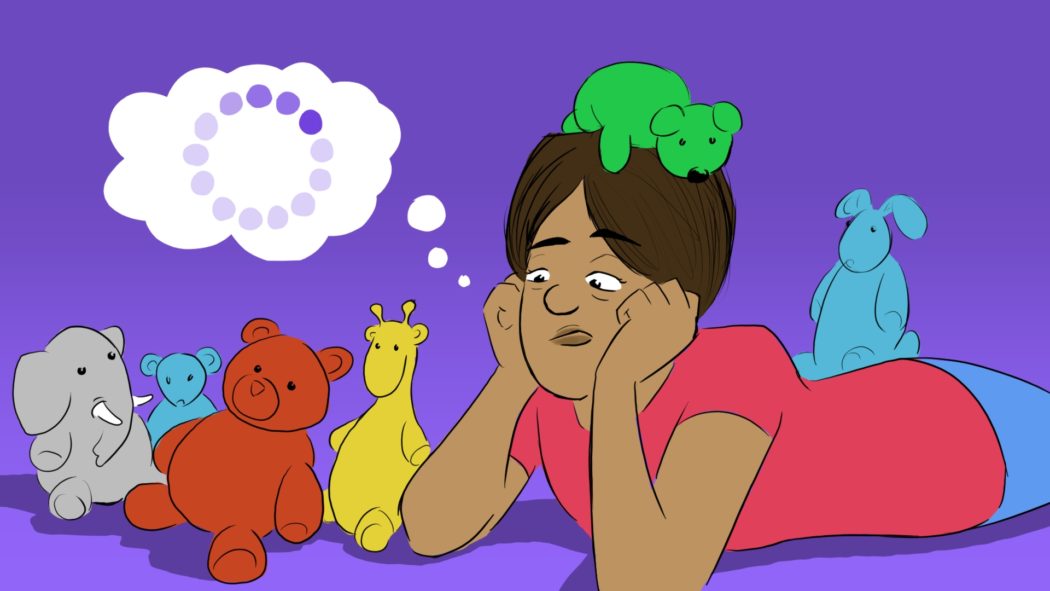Opinion: Consumerism is the killer of creativity
In a world where the consumer is king, parents can make their children’s every wish come true efficiently and affordably. But, by supplying children with their every materialistic want, we are depriving them of creativity and essential problem-solving skills.
Toys come in many different shapes and sizes and children today have more options than children living at any time period in history. With the click of a button, parents can ensure that children can have whatever is on their wish list. But, there are notable downsides to having a full playroom.
Children with too many toys do not learn how to be bored, which is detrimental not only to them but also to society.
Children need to be bored. Boredom is a useful tool. Dr. Vanessa Lapointe says, “Children need to sit in their own boredom for the world to become quiet enough that they can hear themselves.”
Children need to learn to listen to themselves. They need to know themselves to be able to recognize their passions, dream, innovate, and contribute to the world around them.
Bored children get a chance to know themselves better than children who are constantly busy playing with toys, video games, and watching movies. They are more in touch with their emotions and thoughts because they have had time to hear themselves think.
Boredom stimulates a child’s imagination. They have to get creative and find a way to entertain themselves, leading them to come up with a new way to play with a once boring toy, write plays for them and their friends to perform or draw pictures — they must create something rather than rely on something that has already been created.
Once a child with too many toys tires of one toy, they simply move on to the next. This creates a never-ending cycle of wanting something to keep them engaged. They never learn to rely on themselves for entertainment and creativity.
It is important to teach children how to harness boredom and use it to their advantage because bored children become bored adults. And while a new toy may have assuaged them in their youth, bored adults chase entertainment in much more expensive and destructive ways.
Adults who never had to be bored as children equate boredom with unhappiness. To fill the void they never got comfortable with, they plan expensive vacations, make risky decisions, and end up fighting lifelong battles with addiction. They become absorbed with themselves and lose curiosity and interest in the world around them.
Parents who allow their children to be bored raise creative problem solvers who are ready to face the world and its problems. They learn to look inside themselves for answers and to be confident in their solutions— traits that are pivotal to the progression of society.
Every generation has to adapt and grow in order for survival on this planet to be feasible.
In 1918, the world faced the Spanish flu as well as the first World War. By 1945, a generation had survived the Great Depression and the Second World War. In the ‘60s and ‘70s, marginalized groups fought tooth and nail for their rights. The ‘80s, ‘90s, and ‘00s dealt with a rise in terrorism and the de-escalation of nuclear arms.
Today, brilliant scientists worked tirelessly for months to produce a vaccine to prevent the spread of COVID-19.
All of these problems were faced and solved by brilliant people who learned how to be creative contributors to society. Are children being raised today being taught creativity and problem-solving skills? Are we placating them with the accessibility that accompanies consumerism?
Is the next generation being prepared to solve the crises that will surely be dealt to them?
We can help ready them by limiting the number of toys a child has or gets to keep, not panicking when they say “I’m bored,” and by gifting more books or experiences in place of toys.
It is crucial that we look forward to the future and momentarily deny the immediate wants of children in order to foster their minds and create healthier adults for a healthier society. We need to teach children from a young age that the world is theirs to shape if they can become comfortable with boredom, make time to listen to their thoughts, and solve problems no matter how small they may appear.

Addy Kirkham is a senior studying English with an emphasis in literary analysis. She enjoys reading, running, and mountain biking.
addy.kirkham@usu.edu

